Find Out the Power of Questions
Asking the right questions is crucial for success in business and careers. Jack, a young entrepreneur, discovered this early on in his career. He was constantly asking questions and found that it led him down a path of success. But what made Jack’s questions so effective? It wasn’t just the frequency of his questioning, but rather the type of questions he was asking.
In this article, we’ll explore the different types of questions you can ask and how they can influence the answers you receive. We’ll dive into open-ended questions, closed-ended questions, leading questions, and more. By the end of this article, you’ll have a better understanding of how to ask the right questions to get the most useful answers.
The 7 Types of Questions: A Comprehensive Overview
Asking questions is a vital skill in business and careers, and understanding the different types of questions is crucial for success. There are 7 types of questions that individuals can use to gather information, evaluate progress, and solve problems. Knowing when and how to use each type of question is essential for individuals who want to improve their communication skills and achieve success in their work.
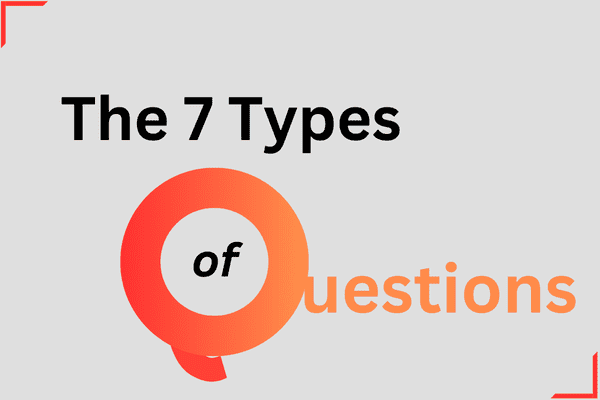
The 7 types of questions can greatly impact the quality of communication between individuals. Open-ended questions encourage thoughtful responses, while closed-ended questions are perfect for quick, specific information. However, leading questions can potentially influence the answer, whereas probing questions are excellent for uncovering hidden information. Clarifying questions ensure accuracy and reflection questions help with self-improvement. Conceptual questions, on the other hand, help for deeper thinking.
In this article, we will delve into each type of question, provide detailed explanations, and present real-life examples to help you apply them effectively in various situations.
1. Open-ended Questions: The Power of Asking “Why” and “How”
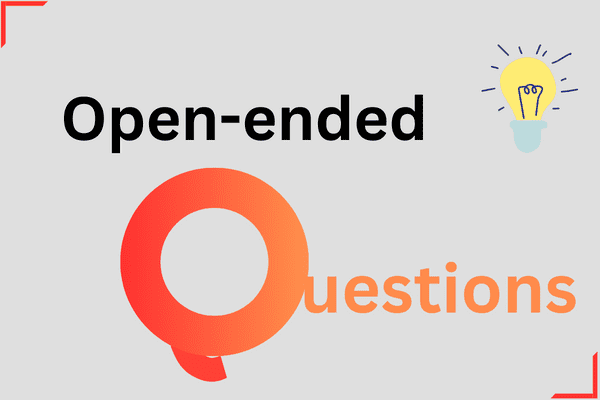
Asking open-ended questions that begin with “why” and “how” can be a powerful tool in both business and career settings. These types of questions allow for more complex and detailed answers, providing a deeper understanding of a situation or problem. They also encourage critical thinking and can lead to creative solutions.
Using Open-ended Questions
In a business setting, open-ended questions can be especially useful in sales or customer service. For example, instead of asking a potential client if they’re interested in a product or service, try asking, “Can you tell me more about your needs and goals?” This will prompt the client to provide more information, allowing the salesperson to tailor their pitch to better fit the client’s needs. Similarly, in customer service, asking “Can you describe the issue you’re experiencing in more detail?” can help the representative pinpoint the problem and provide a more effective solution.
In a career setting, asking open-ended questions can help build stronger relationships with colleagues and superiors. For example, instead of simply asking a coworker how their weekend was, try asking, “What did you do this weekend that was particularly enjoyable or interesting?” This not only shows interest in the coworker’s life outside of work but can also lead to a more meaningful conversation. Additionally, in performance evaluations, asking open-ended questions like, “How do you feel about your progress on this project?” can provide more detailed feedback and lead to a better understanding of strengths and areas for improvement.
Overall, the power of asking open-ended questions lies in the depth and complexity of the responses they elicit. By using open-ended questions in business and career settings, individuals can gather more information, encourage critical thinking, and build stronger relationships.
2. Closed-ended Questions: Using “What” and “Who” to Gather Specific Information
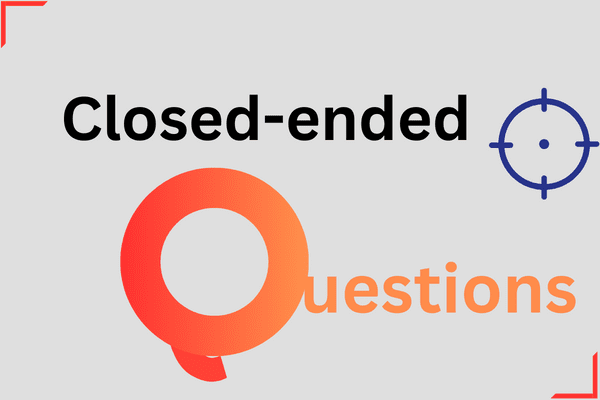
Closed-ended questions that begin with “what” and “who” can be useful in gathering specific information quickly and efficiently. These types of questions are particularly effective when seeking factual information or when time is limited. However, it’s important to note that closed-ended questions can limit the information provided, so it’s important to use them strategically.
Using Closed-ended Questions
In a business setting, closed-ended questions can be useful in gathering specific information from clients or customers. For example, in market research, closed-ended questions like “What is your age range?” and “Which of the following products have you purchased in the last six months?” can quickly provide the desired information. Similarly, in a customer service setting, asking “Who did you speak with previously about this issue?” can help the representative quickly locate the previous conversation and provide more efficient service.
In a career setting, closed-ended questions can also be useful in gathering specific information from colleagues or superiors. For example, in a meeting, asking “What specifically needs to be addressed in this project?” can help ensure the discussion stays focused and productive. Additionally, in a job interview, closed-ended questions like “What relevant experience do you have?” and “Who was your previous employer?” can quickly provide the information needed to make an informed decision.
Overall, closed-ended questions can be a useful tool when used strategically. By using “what” and “who” questions in both business and career settings, individuals can gather specific information quickly and efficiently, allowing for more focused and productive conversations and interactions.
3. Leading Questions: How to Avoid Bias and Influence in Your Questions
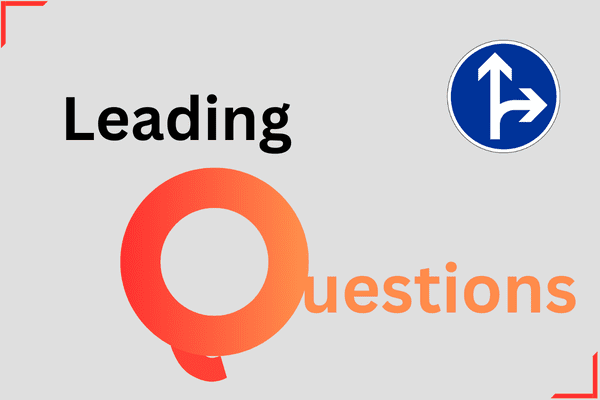
Leading questions are questions that are phrased in a way that influences the response. These types of questions are often used to push someone towards a specific answer or to sway their opinion. In a business or career setting, leading questions can be particularly harmful, as they can lead to biased or incomplete information. Therefore, it’s important to be aware of leading questions and avoid using them whenever possible.
Avoiding Leading Questions
One way to avoid leading questions is to focus on the facts rather than opinions or assumptions. For example, instead of asking “Don’t you think this is the best solution?” ask “What are your thoughts on this solution?” This allows the person to provide their opinion without feeling pressured or influenced.
Another way to avoid leading questions is to use neutral language. This means avoiding loaded or emotionally charged words and sticking to more objective language. For example, instead of asking “Why do you think this plan is a bad idea?” ask “What are some potential drawbacks of this plan?” This allows for a more open and unbiased discussion.
In addition to being aware of leading questions, it’s important to actively listen to the responses and ask follow-up questions. This can help clarify any misunderstandings or biases and ensure that all perspectives are heard. By asking open-ended questions and actively listening, individuals can avoid leading questions and promote a more open and productive conversation.
4. Probing Questions: Digging Deeper to Uncover Hidden Information
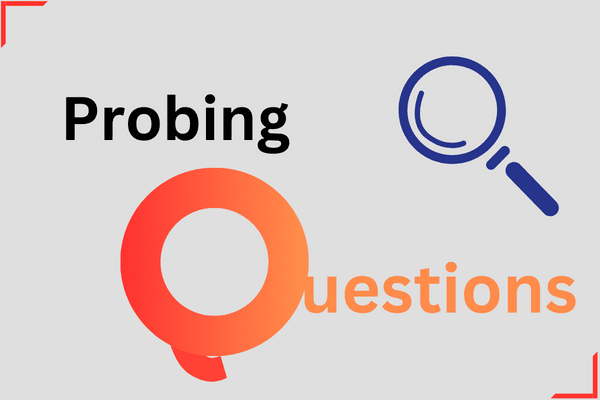
Probing questions are open-ended questions that are designed to elicit more information and uncover hidden details. They are particularly useful in situations where more in-depth information is needed, such as during a job interview or when conducting market research. By asking probing questions, individuals can gain a deeper understanding of a situation and make more informed decisions.
One type of probing question is the “why” question. This question allows individuals to understand the underlying motivations and reasoning behind a statement or decision. For example, instead of asking “What are your goals for the future?” ask “Why do you want to achieve those goals?” This can provide valuable insight into an individual’s thought process and priorities.
Another type of probing question is the “what if” question. This question allows individuals to explore hypothetical scenarios and consider potential outcomes. For example, instead of asking “What do you think will happen if we implement this plan?” ask “What if we encounter unexpected obstacles during the implementation process?” This can help individuals anticipate and prepare for potential challenges.
In addition to asking probing questions, it’s important to be an active listener and pay attention to nonverbal cues. This can help individuals uncover additional information and gain a deeper understanding of the situation. By asking probing questions and actively listening, individuals can gather more complete and accurate information and make more informed decisions.
5. Clarifying Questions: Ensuring You Understand the Information You’ve Received
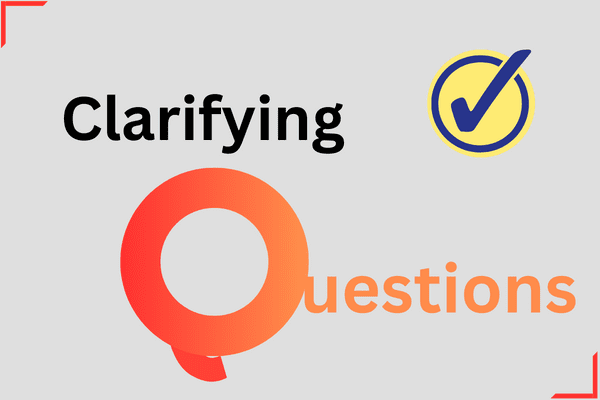
In any business or career setting, it’s important to ensure that you fully understand the information you’ve received before moving forward. This is where clarifying questions come in. Clarifying questions are used to confirm that you have correctly understood what has been communicated to you. By asking these questions, you can avoid misunderstandings and ensure that you are making informed decisions.
Examples of Clarifying Questions
One type of clarifying question is the “repeat back” question. This involves restating what you’ve heard in your own words to confirm that you’ve understood it correctly. For example, you might say, “If I understand correctly, you’re asking for a report on the sales figures for the third quarter. Is that correct?” This allows the other person to confirm that you’ve understood their request correctly, and it also allows them to clarify any points that may have been misunderstood.
Another type of clarifying question is the “specifics” question. This involves asking for specific details or examples to help clarify a point. For example, you might ask, “Can you give me an example of how this process works?” This can help ensure that you have a clear understanding of the topic at hand and can also help you identify any areas where you may need additional information or clarification.
Active listening
In addition to these types of clarifying questions, it’s important to be an active listener and pay attention to nonverbal cues. This can help you identify areas where you may need further clarification and can also help you avoid misunderstandings. By using clarifying questions and being an active listener, you can ensure that you fully understand the information you’ve received and make informed decisions based on that information.
6. Reflection Questions: Evaluating Your Progress and Identifying Areas for Improvement
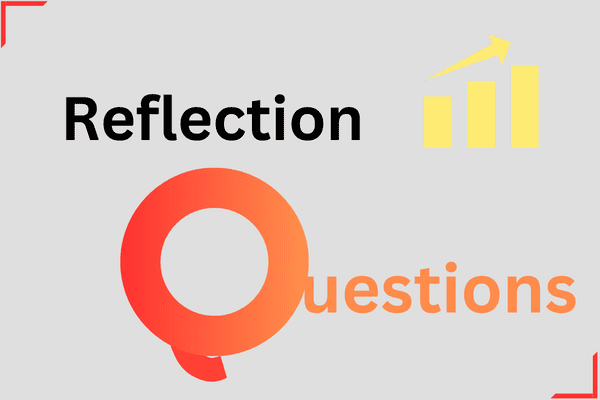
The process of self-reflection is essential for personal and professional growth. Reflection questions can help you evaluate your progress and identify areas for improvement.
The Power of Reflection Questions
Reflection questions help you examine your experiences and evaluate your progress. They allow you to take a step back and gain perspective on your accomplishments, challenges, and goals. By asking yourself reflection questions regularly, you can identify patterns, recognise your strengths and weaknesses, and develop an improvement plan. Moreover, reflection questions can help you stay motivated and focused on your long-term objectives.
Examples of Effective Reflection Questions
Effective reflection questions are open-ended and encourage you to think deeply about your experiences. Here are some examples of reflection questions that you can ask yourself:
“What did I learn from this experience?”
“What were my biggest successes and challenges?”
“How did I contribute to the outcome?”
“What could I have done differently?”
“What are my long-term goals, and how can I work towards them?”
By asking yourself these questions, you can gain a deeper understanding of your experiences, strengths, and areas for improvement.
Tips for Incorporating Reflection Questions into Your Routine
Incorporating reflection questions into your routine can be challenging at first, but with practice, it can become a natural part of your day. Here are some tips for getting started:
Schedule regular reflection time: Set aside time each day, week, or month to reflect on your experiences. Make it a priority and stick to your schedule.
Keep a journal: Writing down your thoughts and reflections can help you process your experiences and track your progress.
Be honest with yourself: Don’t be afraid to acknowledge your weaknesses or mistakes. By being honest with yourself, you can identify areas for improvement and develop a plan to address them.
Use reflection questions as a tool for growth: Instead of dwelling on your mistakes, use reflection questions as an opportunity to learn from them and grow. By focusing on your strengths and areas for improvement, you can develop a plan for success.
The Types of Questions in Teaching
As an educator, asking questions is one of the most important tools you have in your arsenal. Not only do questions help you evaluate your student’s understanding of a subject, but they also encourage critical thinking, curiosity, and engagement. Whether you’re teaching young children or adult learners, there are several types of questions you can use to promote learning and foster a positive classroom environment.
7. Conceptual Questions: Encouraging Critical Thinking
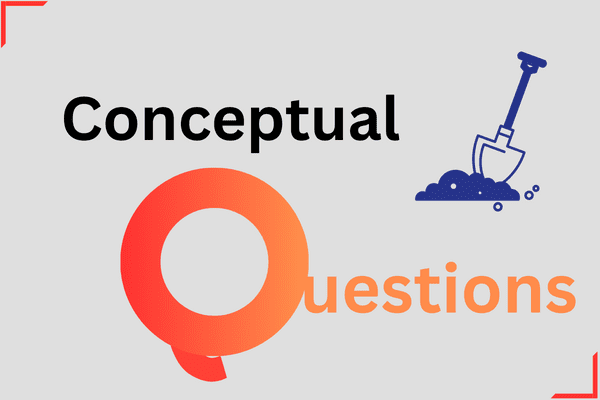
Conceptual questions are designed to help students think deeply about a subject and make connections between different concepts. These questions often begin with “why” or “how” and require students to use their knowledge to form an answer. For example, a science teacher might ask, “Why do some animals hibernate during the winter?” This question encourages students to think about the purpose of hibernation and how it benefits animals in different environments.
Factual Questions: Assessing Knowledge
Factual questions are used to assess students’ knowledge of specific facts or details about a subject. These questions often begin with “what” or “when” and require students to recall information they’ve learned. For example, a history teacher might ask, “When did the American Civil War begin?” This question assesses whether students have retained key information about a historical event.
The Importance of Asking the Right Questions in Business
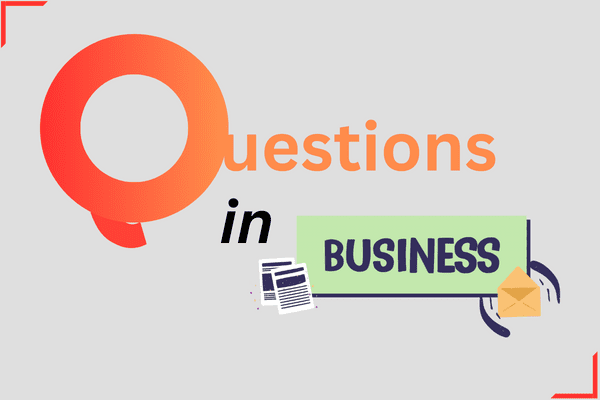
As a business owner or professional, attracting clients and customers is essential for success. However, with so much competition in the market, it can be challenging to stand out from the crowd. One of the most effective ways to connect with potential clients and customers is by asking the right questions.
#1 – Understanding the Customer’s Needs
Asking the right questions is crucial to understanding the needs and desires of your potential clients and customers. By doing so, you can tailor your products or services to meet their specific needs and make a more meaningful connection.
For instance, if you own a beauty salon, asking your customers about their hair or skin concerns can help you recommend the best treatments or products for them. This level of personalisation can not only improve customer satisfaction but also increase the chances of them returning to your business in the future.
#2 – Building Trust and Rapport
Another benefit of asking the right questions is building trust and rapport with your customers. When customers feel heard and understood, they are more likely to trust your business and make a purchase. Additionally, asking questions can help you build a relationship with your customers beyond just a transactional one.
#3 – Staying Ahead of the Competition
Finally, asking the right questions can help you stay ahead of the competition. By gaining insight into what your customers want and need, you can develop innovative products or services that meet those needs. Additionally, by providing a personalised experience for your customers, you can differentiate yourself from competitors who may offer similar products or services.
Conclusion
Asking the right questions is a skill that can be developed and honed. It is an essential component in achieving success in any business or career. By utilising the different types of questions, we have discussed in this article, you can gather valuable information, build relationships, and identify areas for improvement. Educators can use questions to enhance learning, and businesses can use questions to attract clients and customers. By reflecting on your progress and identifying areas for improvement, you can continually strive for growth and success.
Remember to ask the right questions and listen to the answers carefully, and you will be well on your way to achieving your goals. Engage with us on Linkedin if you haven’t already!




